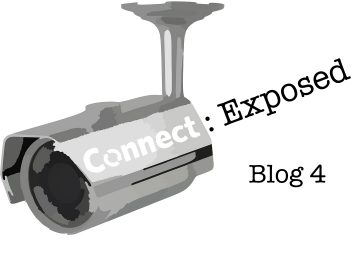By bryan short on August 28, 2016 | Tagged with Digital identity, Digital Identity Digest, digital tattoo, privacy
New Facebook application for teens presents privacy concerns Facebook released a new video sharing application called Lifestage this week that is intended for users under the age of 21. The social media company has been losing market share to ephemeral applications like Snapchat, and has been looking for ways to engage the young users who favour its […]
Read More | No Comments
By bryan short on August 26, 2016 | Tagged with Connect, Connect series, Digital identity, learning analytics
The 30 business days that FIPPA allows for a public body to provide personal information expired on August 19th, 2016. I reached out to the University Office of Counsel and asked them when I was going to receive my data, and was informed that because of the “large volume of responsive records” that they’re dealing […]
Read More | 6 Comments
By bryan short on August 21, 2016 | Tagged with Digital Identity Digest
Hackers targeting medical records For most of us, our largest concern relating to digital security is exposing our banking information to cybercriminals. Whether it’s our credit card numbers our private chequing or savings account information, we’re willing to endure safeguards like chip and pin protocols and highly secretive passwords. However, and perhaps because of all these security […]
Read More | No Comments
By bryan short on August 17, 2016 | Tagged with Connect, Connect series, Digital identity, digital tattoo, learning analytics
As I continue waiting for the return of my data from UBC’s Office of Counsel, I’ve begun examining the structure of the Connect system. For a Learning Management System, Connect effectively manages the amount of information that students can learn from it. The system is divided into three roles: that of the student, who creates the majority […]
Read More | 2 Comments
By bryan short on August 10, 2016 | Tagged with Connect, Connect series, Digital identity, learning analytics
Meaningful consent is a term that describes a certain level of understanding reached between a user and a service in order to qualify that agreement as fair and ethical. UBC, a publicly funded institution, should strive for the highest degree of meaningfulness in their user agreements by clearly explaining how their services operate to their users. Although there’s a difference […]
Read More | No Comments
By bryan short on August 3, 2016 | Tagged with cheating, Crap Detection, Digital literacy, Online Safety
My partner and I have been considering a move into a new rental apartment in Vancouver. The market is really competitive and we end up spending hours searching and not finding anything that meets our needs. So you can imagine our excitement when we finally discovered the perfect apartment at a great price. We emailed the person who had posted […]
Read More | 1 Comment







